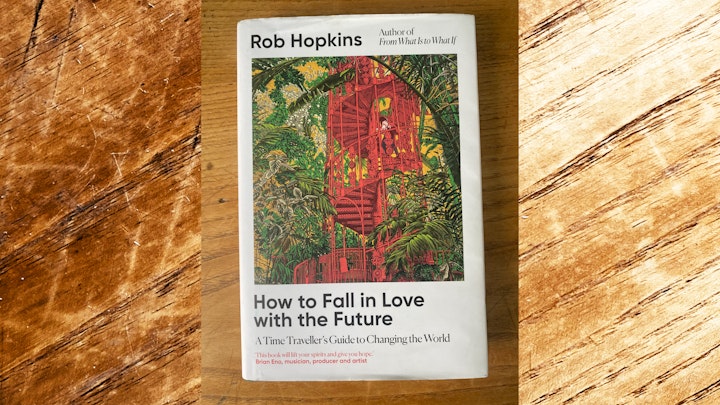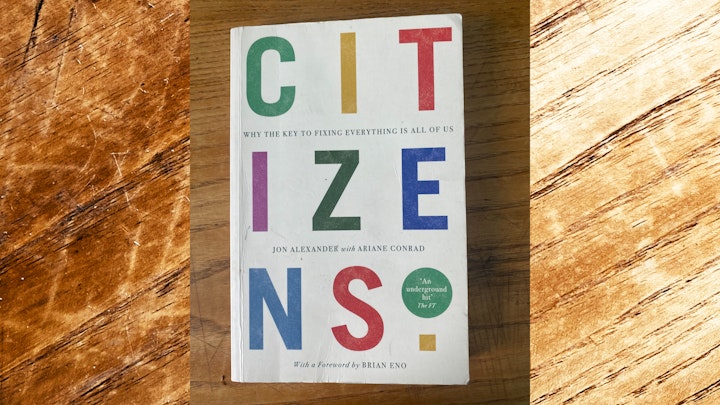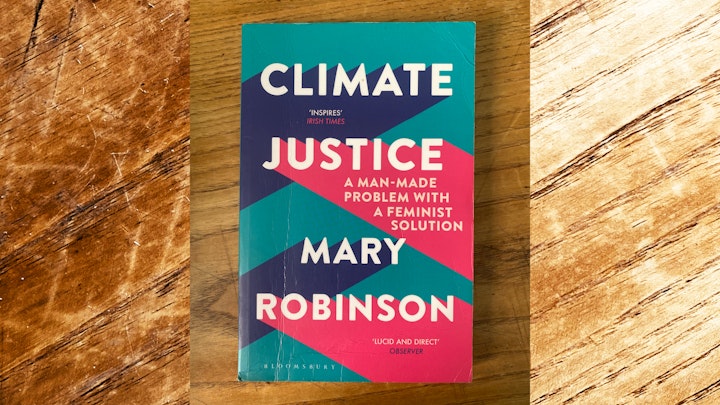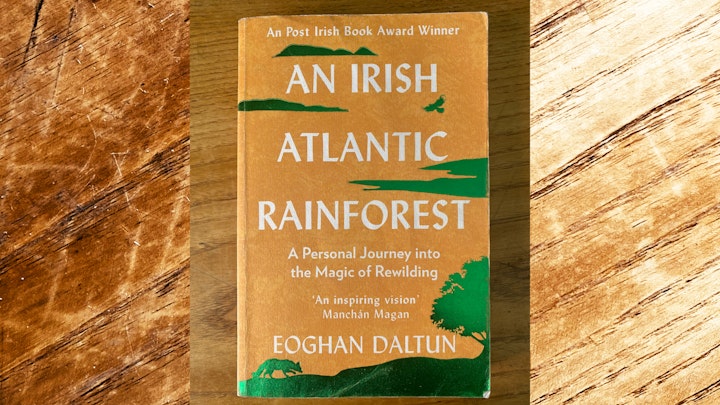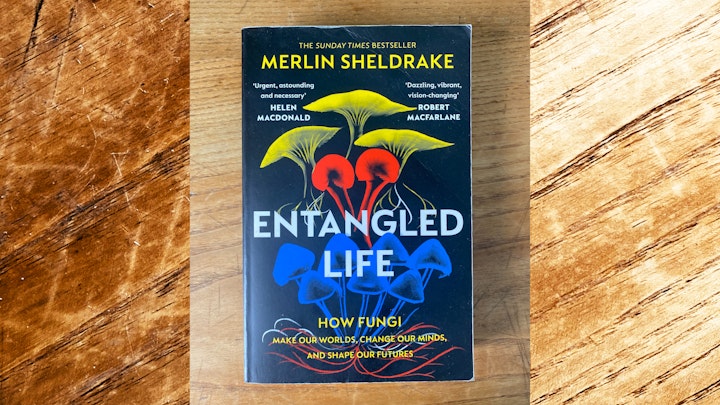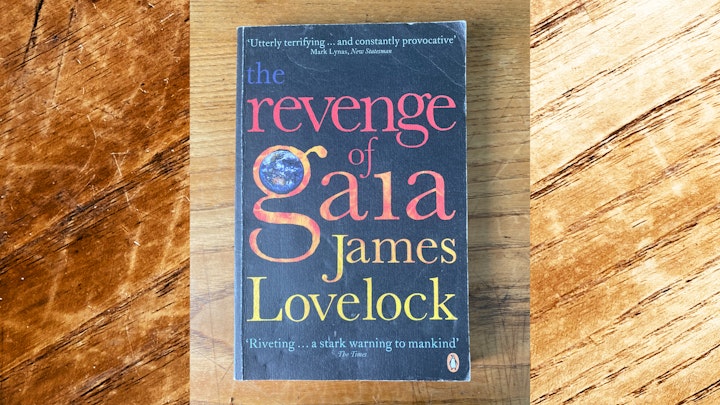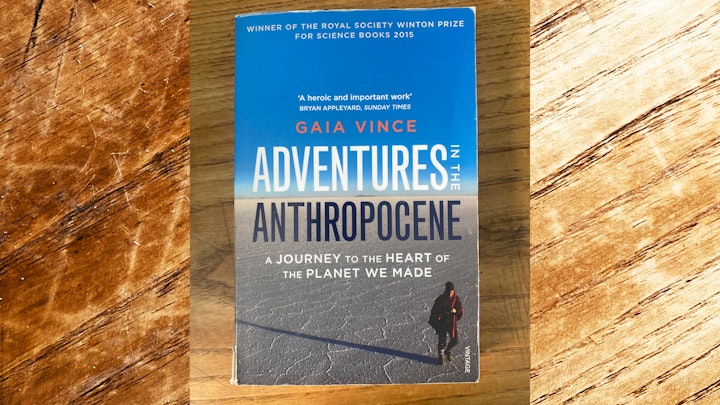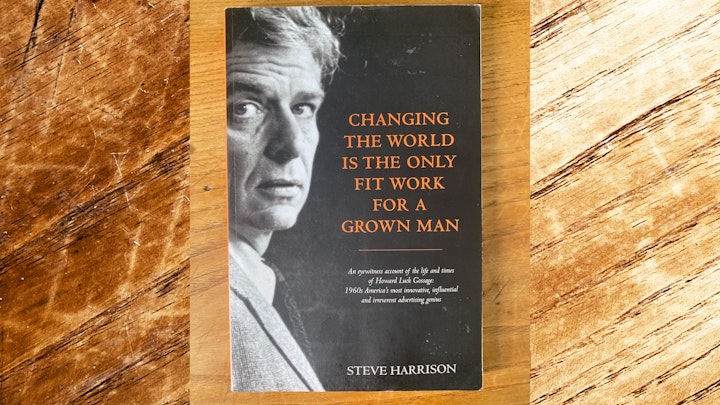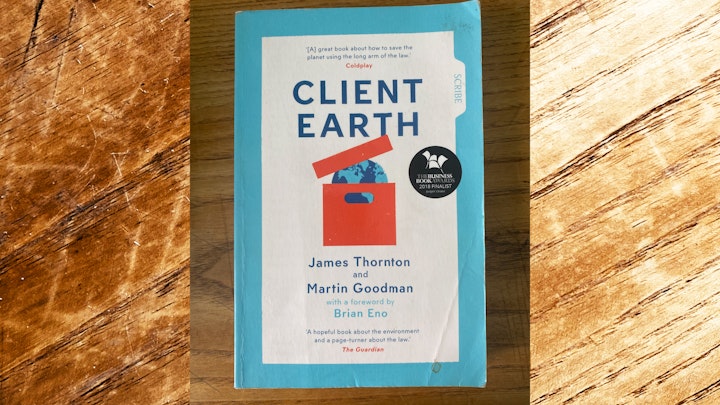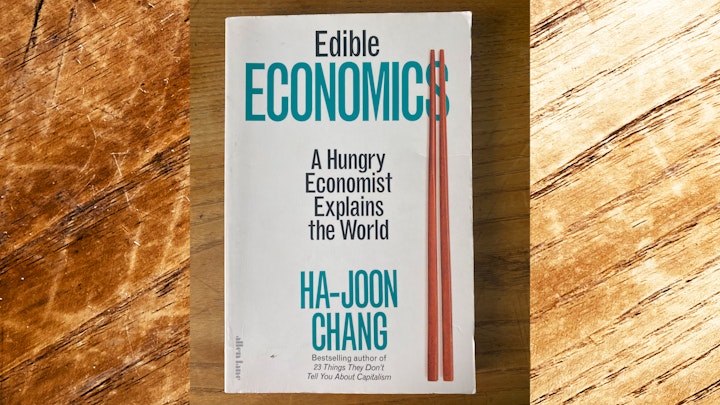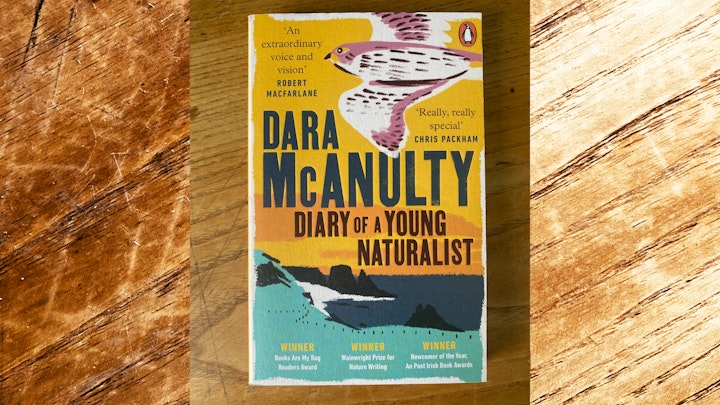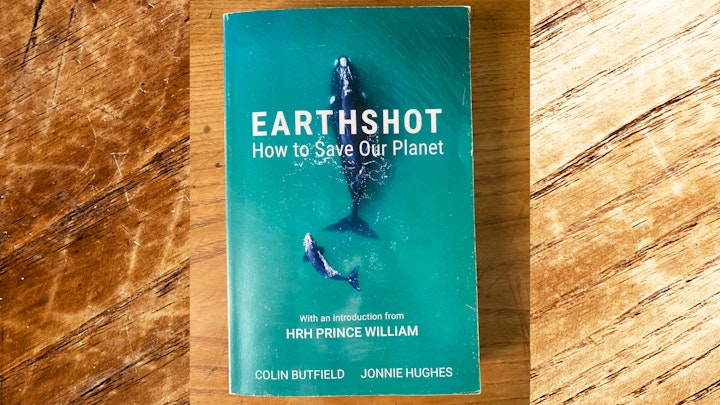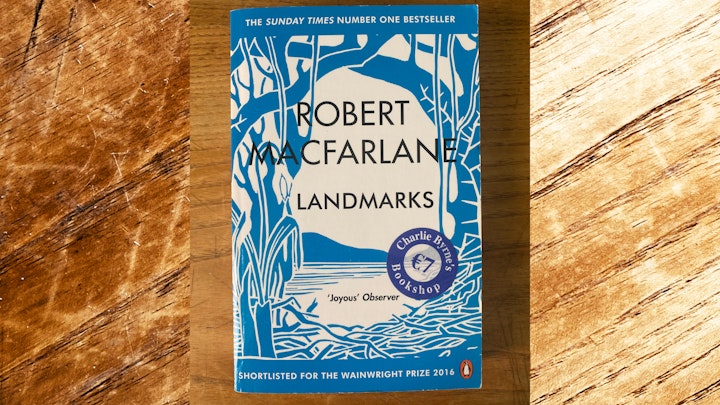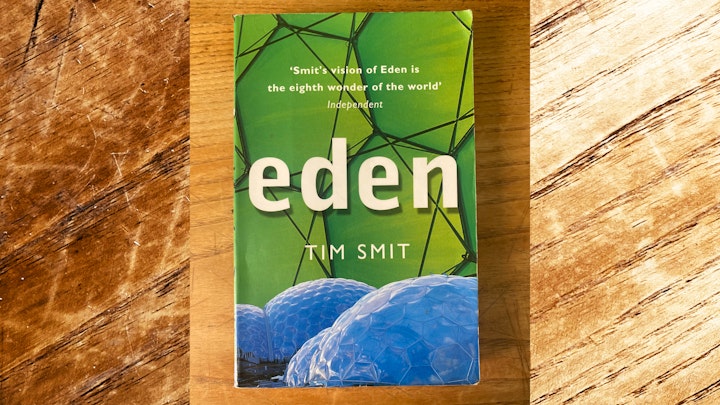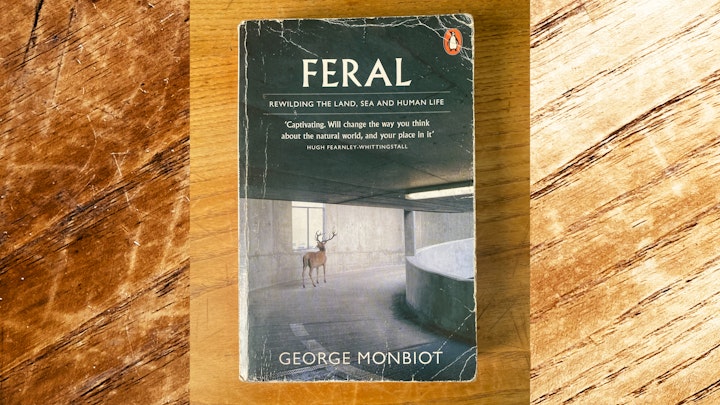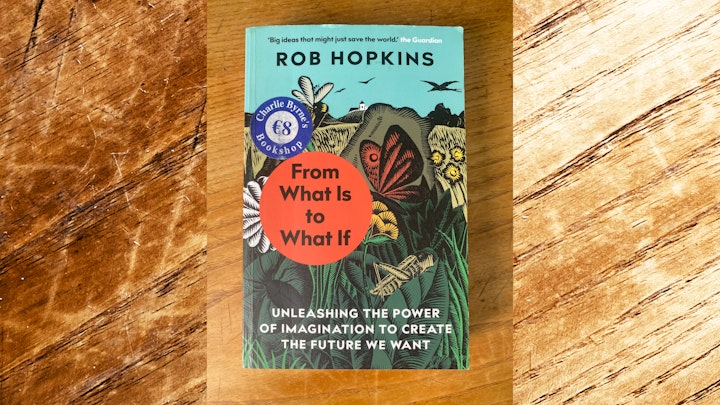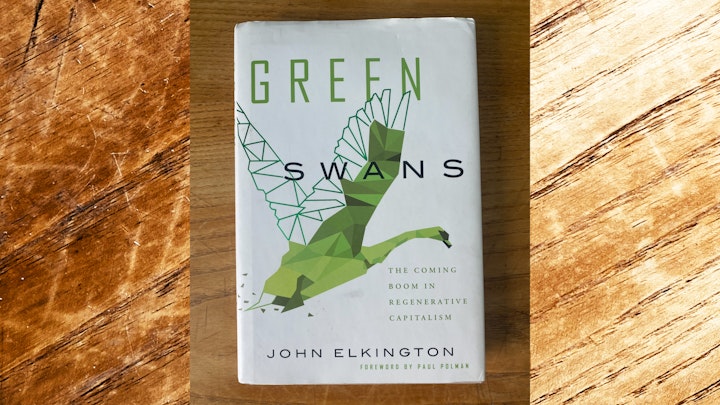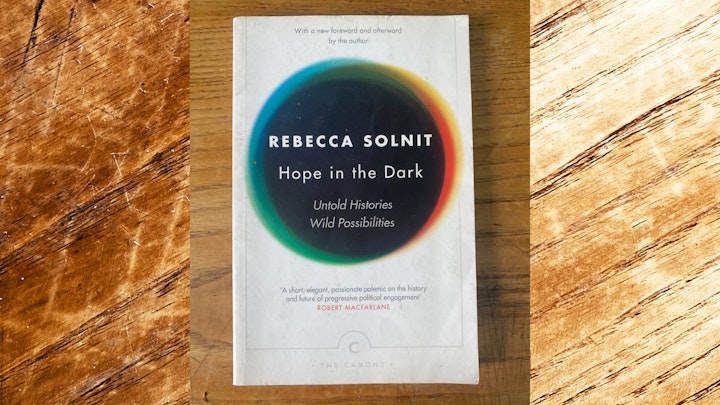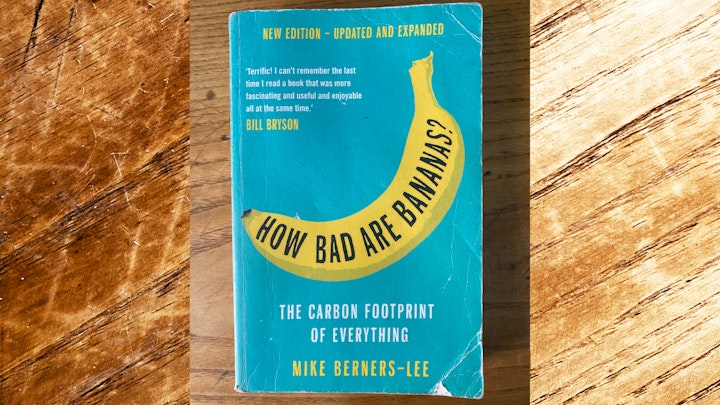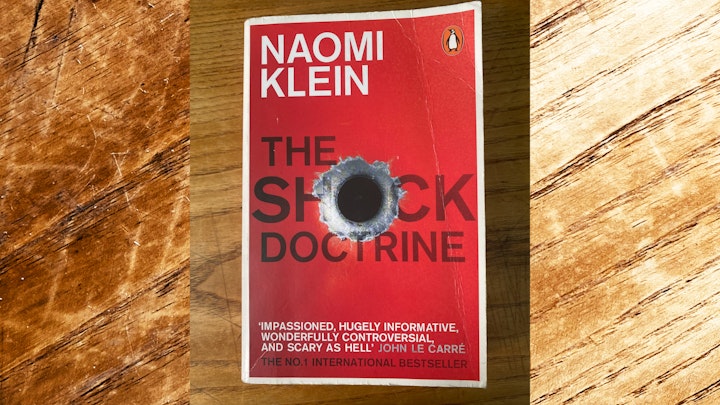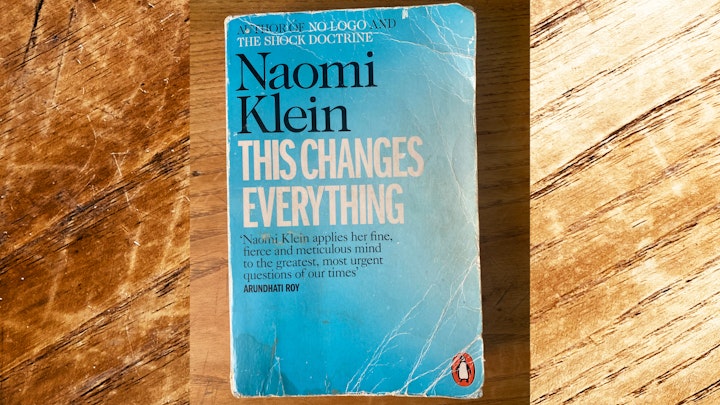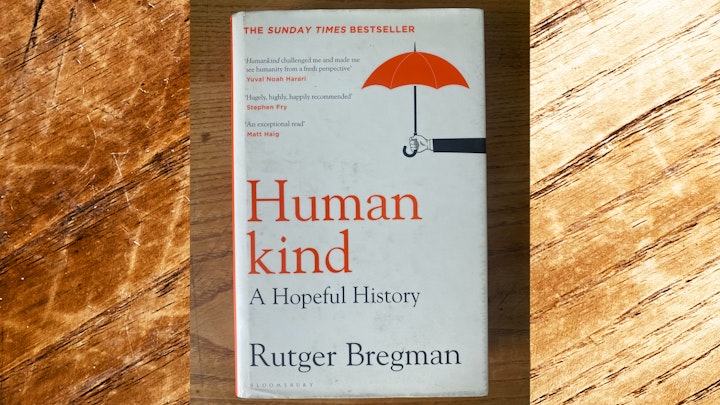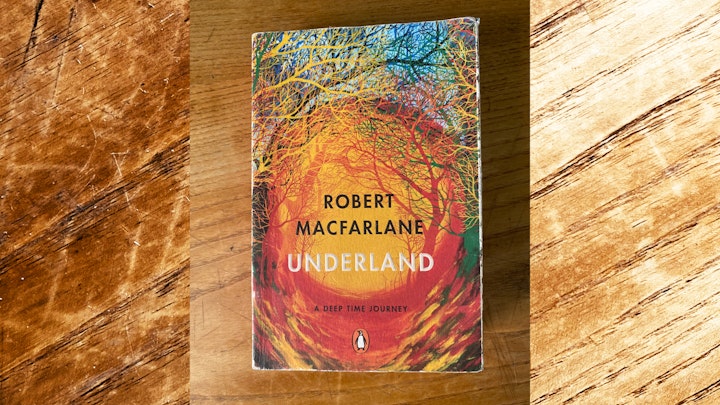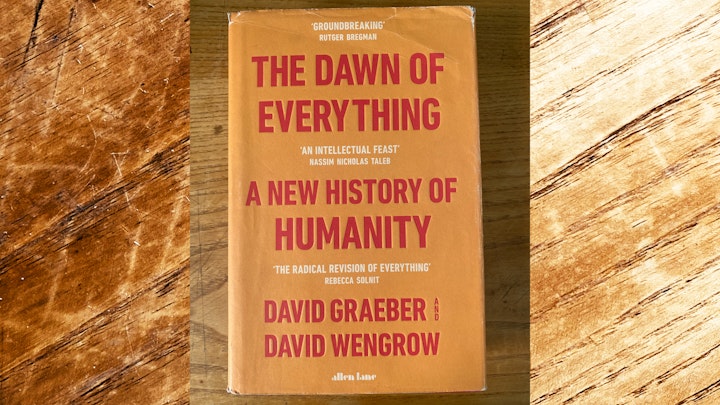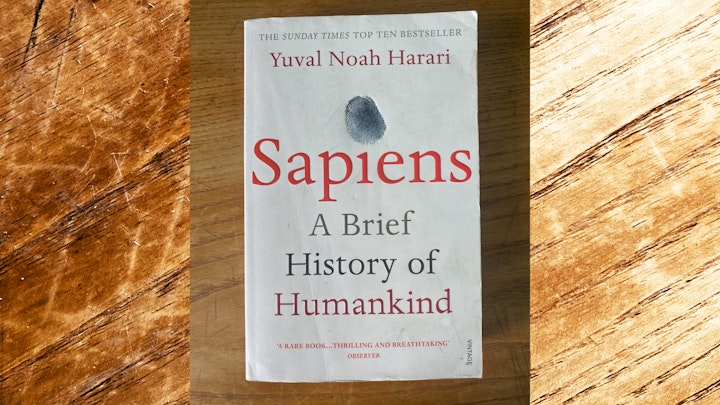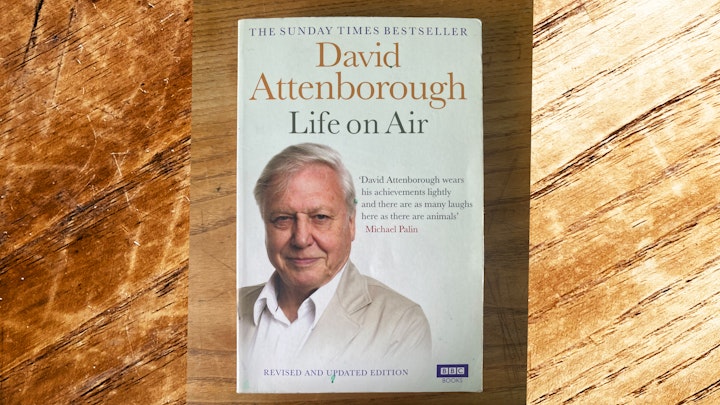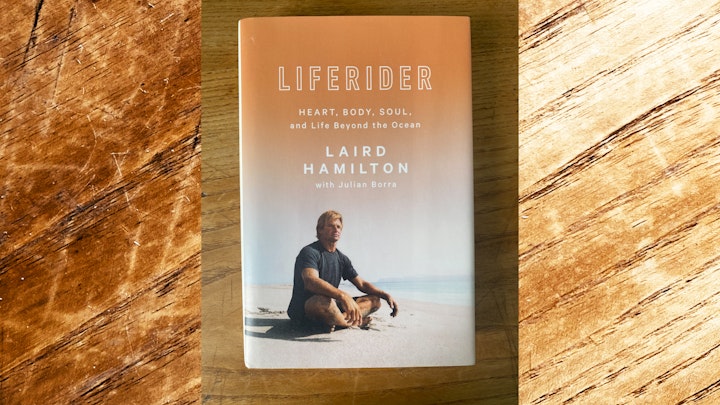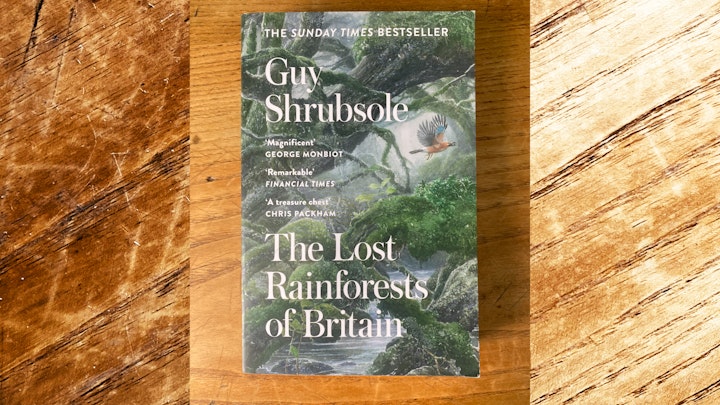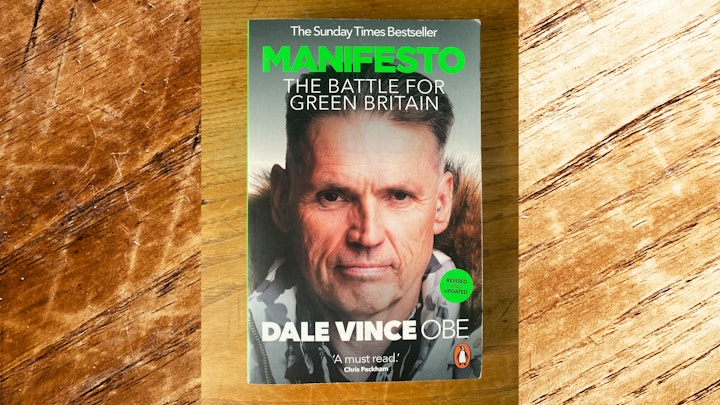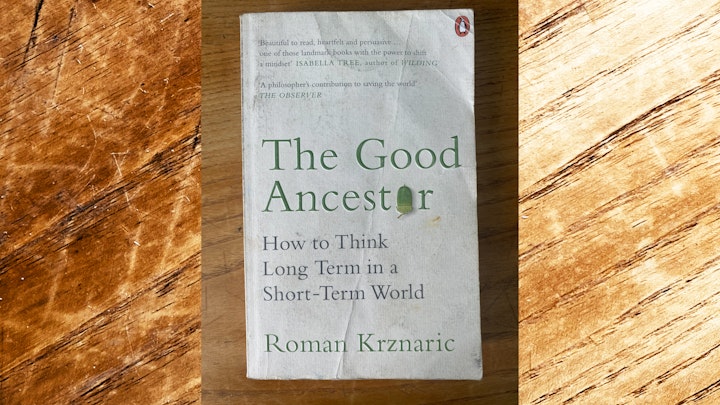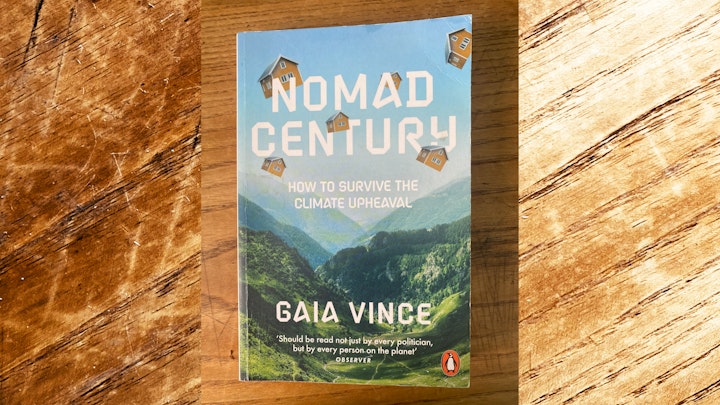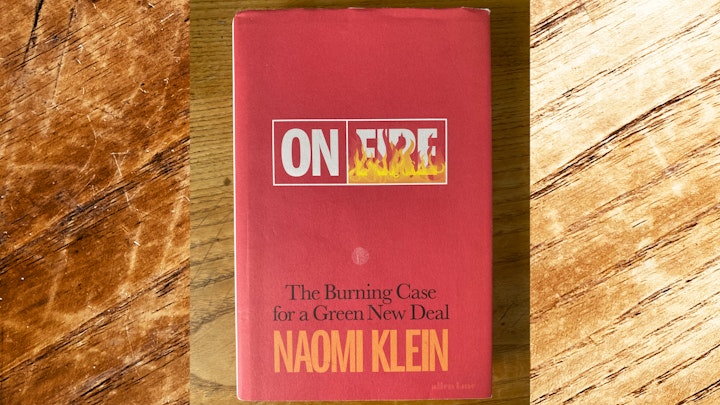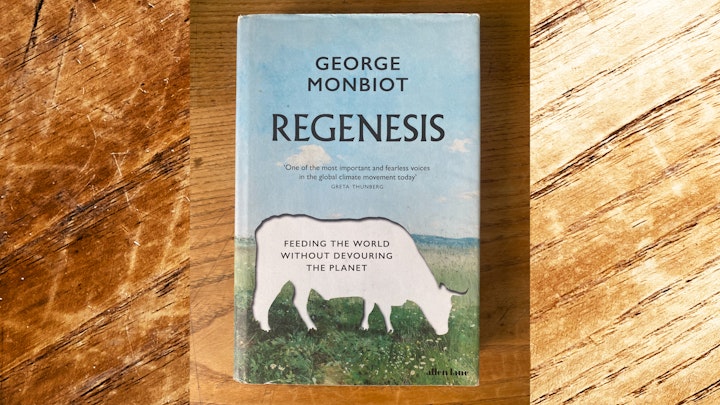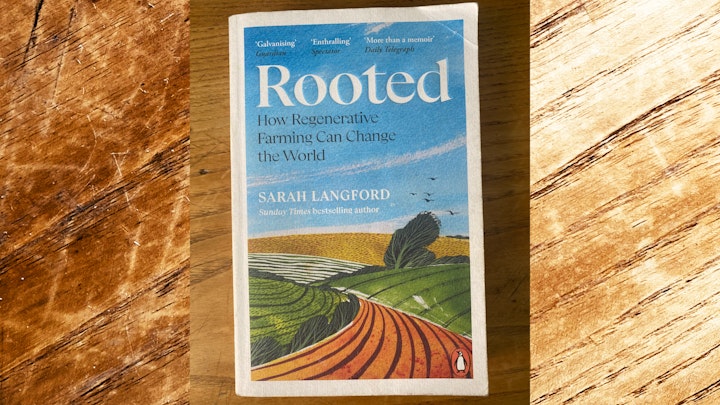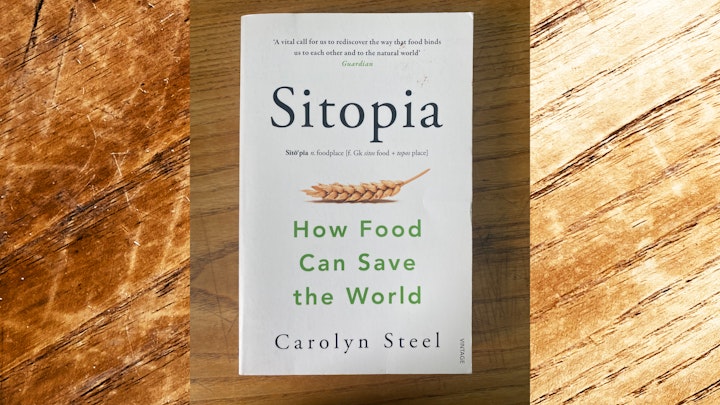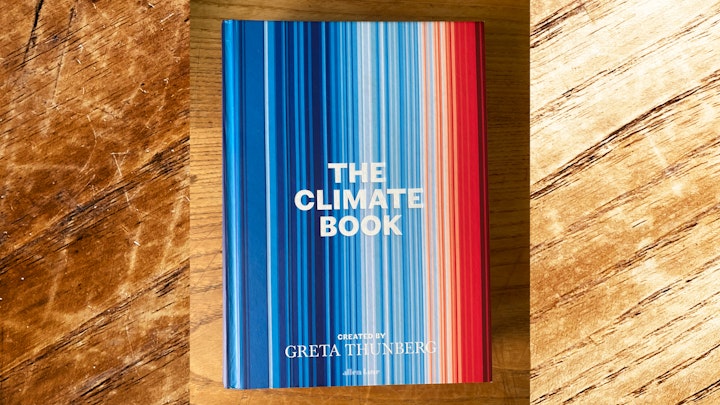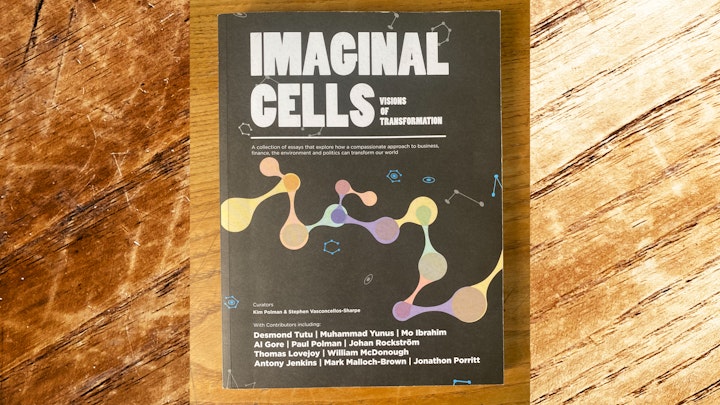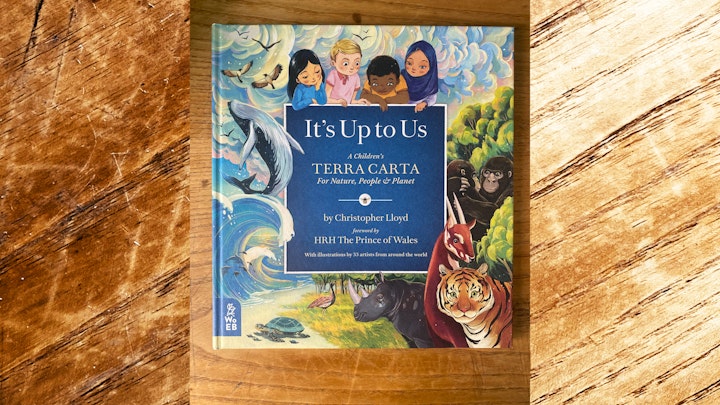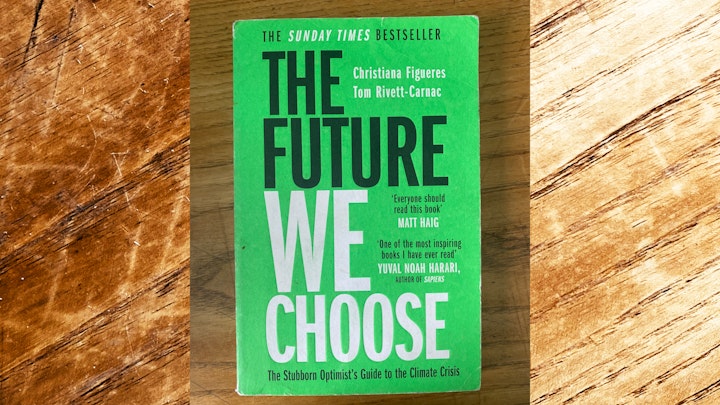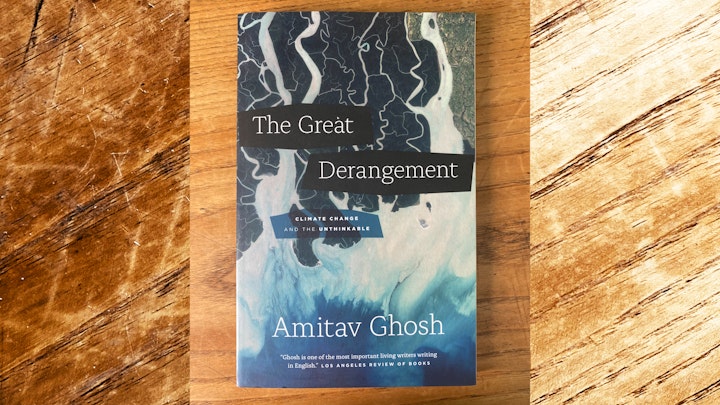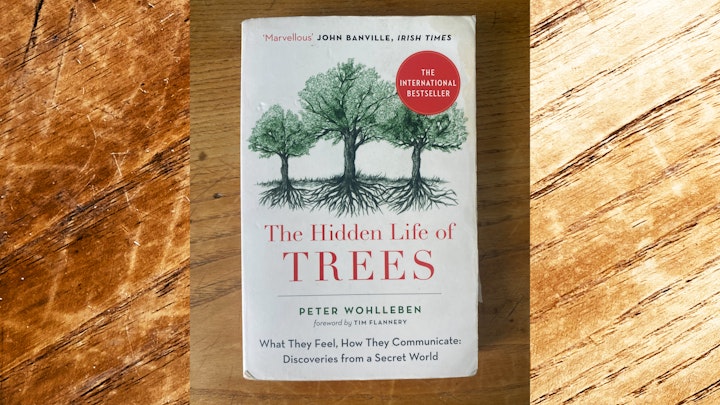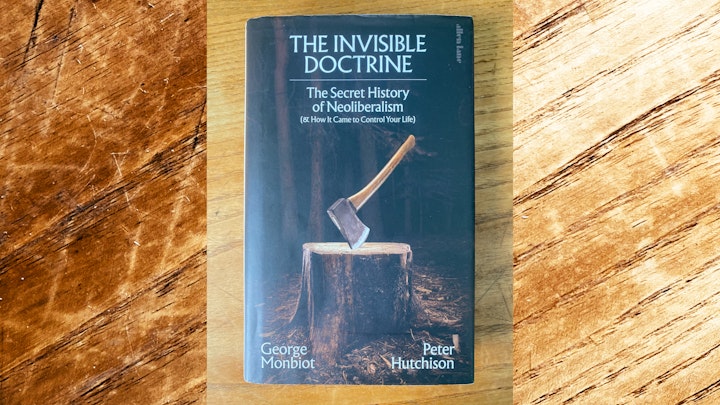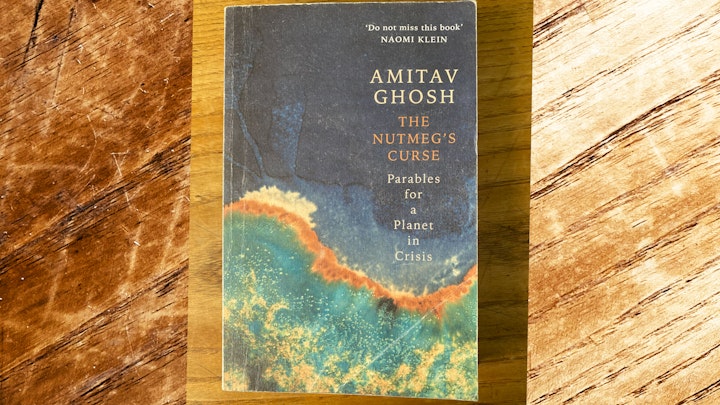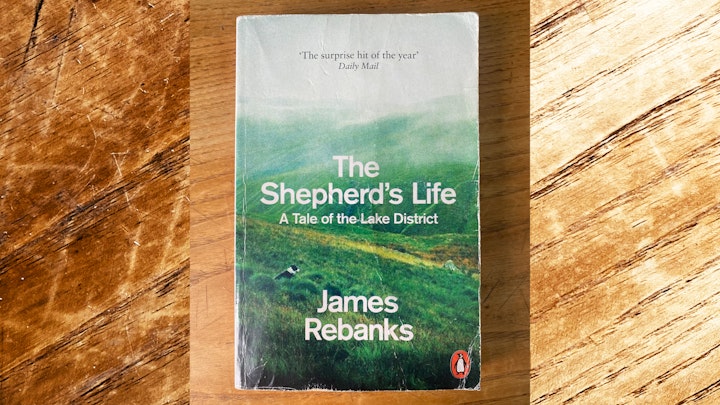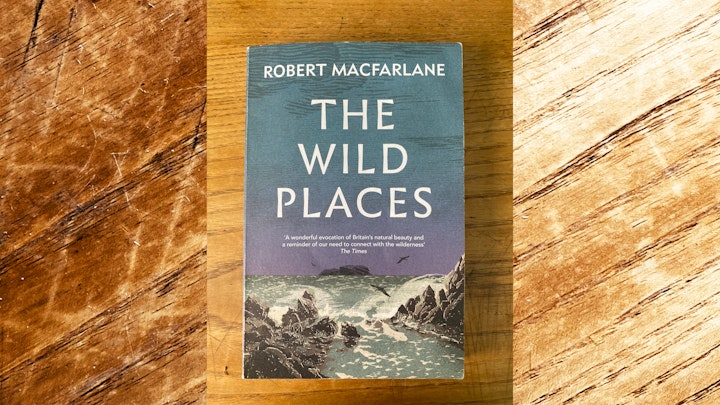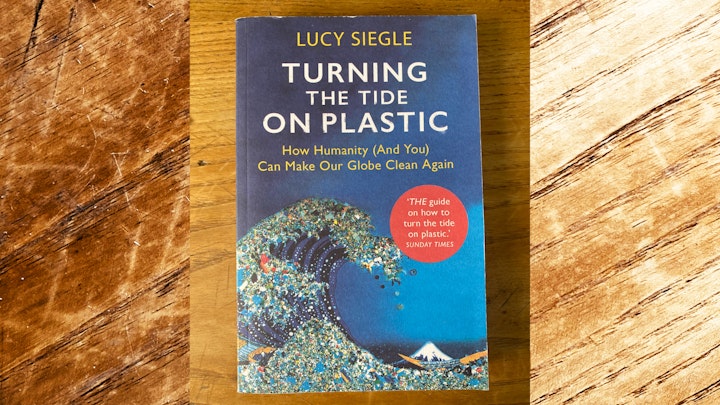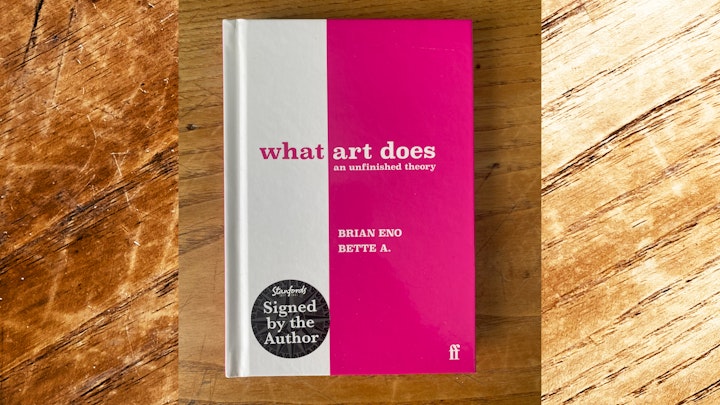BOOKS WE LOVE

BOOKS WE LOVE
“Rob Hopkins puts imagination back at the heart of future-dreaming, offering us an irresistible invitation to dream bigger and then make those dreams a reality.”—Kate Raworth, author of Doughnut Economics

An immense amount of effort is dedicated to solving complex global issues, but it never seems to be enough. And the media often adds fuel to the fire, telling us that our efforts are futile. Citizens by Jon Alexander counters that, and offers a refreshing glimpse of hope.

Powerful and deeply humane, Climate Justice is a stirring manifesto on one of the most pressing humanitarian issues of our time, and a lucid, affirmative, and well-argued case for hope.
“As advocate for the forgotten and the ignored, Mary Robinson has not only shone a light on human suffering, but illuminated a better future for our world.” -Barack Obama

An Irish Atlantic Rainforest charts a remarkable journey. Part memoir, part environmental treatise, as a wild forest bursts into life before our eyes, we’re invited to consider the burning issues of our time: climate breakdown, ecological collapse, and why our very survival as a species requires that we urgently and radically transform our relationship with nature.

“Entangled Life is a dazzling, vibrant, vision-changing book. Sentence after sentence stopped me short. I ended it wonderstruck at the fungal world and the earth-shaking, hierarchy-breaking implications of Sheldrake's argument. This is a remarkable work by a remarkable writer, which succeeds in springing life into strangeness again.” -Robert Macfarlane, author of Underland

In The Revenge of Gaia, bestselling author James Lovelock- father of climate studies and originator of the influential Gaia theory which views the entire earth as a living meta-organism-provides a definitive look at our imminent global crisis.

We all know our planet is in crisis, and that it is largely our fault. But all too often the full picture of change is obstructed by dense data sets and particular catastrophes. Struggling with this obscurity in her role as an editor at Nature, Gaia Vince decided to travel the world and see for herself what life is really like for people on the frontline of this new reality. What she found was a number people doing the most extraordinary things.

This is the story of a 'sixties adman who harnessed the big ideas of his age and set out to reinvent advertising - and then change the world. In so doing he introduced interactive, PR-generating stunts, and social media - way back in the 1960s. Then he used them to save the Grand Canyon, kick-start the Green Movement, free a Caribbean island and launch Wired magazine's 'patron saint', Marshall McLuhan. And he did it all with a flamboyance that inspired the likes of Tom Wolfe, John Steinbeck and the makers of the counterculture. His name was Howard Luck Gossage. These are his life and times.

Environmentally, our planet lacks the laws to keep it safe and those laws we do have are feebly enforced. Every new year is the hottest in human history, while forest, reef, ice, tundra, and species are disappearing forever. It is easy to lose all hope. At the head of this new legal army stands James Thornton, who takes governments to court, and wins. And his client is the Earth.

Myth-busting, witty and thought-provoking, Edible Economics shows that getting to grips with the economy is like learning a recipe: if we understand it, we can change it - and, with it, the world.

Evocative, raw and lyrical, this startling debut explores the natural world through the eyes of Dara McAnulty, an autistic teenager coping with the uprooting of home, school, and his mental health, while pursuing his life as a conservationist and environmental activist.

A book of action and optimism to save our planet. With an introduction from Prince William and contributions from Sir David Attenborough, Shakira Mebarak, Hindou Oumarou Ibrahim, Naoko Yamazaki and Christiana Figueres, EARTHSHOT shows us how, by working together, we can solve Earth’s greatest challenges.

Landmarks is Robert Macfarlane's joyous meditation on words, landscape and the relationship between the two. Words are grained into our landscapes, and landscapes are grained into our words. Landmarks is about the power of language to shape our sense of place.

This is Tim's story of how it all came about--the Project's genesis in the Lost Gardens of Heligan, its design and construction against all the odds, its supremely talented team of larger-than-life personalities, and above all, how the energy that brought the vision to life is being applied to possible futures. It is a vision for all to share.

Feral is the lyrical and gripping story of George Monbiot’s efforts to re-engage with nature and discover a new way of living. He shows how, by restoring and rewilding our damaged ecosystems on land and at sea, we can bring wonder back into our lives.

In 180 sweetly written pages, Rob Hopkins, environmentalist and founder of the Transition Town movement, makes the case for a more human, tactile, emotionally engaged approach to bringing about change, a world away from the desiccated discussions of policy detail, return on investment and making incremental improvements within the status quo.

Can capitalism ever be sustainable? And if so, how? The answer might lie in "Green Swans," a new concept by John Elkington, representing system-wide changes toward a more sustainable world.

At a time when political, environmental and social gloom can seem overpowering, this remarkable book offers a lucid, affirmative and well-argued case for hope.

Berners-Lee runs a considered eye over each area and gives us the figures to manage and reduce our own carbon footprint, as well as to lobby our companies, businesses and government. His findings, presented in clear and even entertaining prose, are often surprising. And they are essential if we are to address climate change.

The Shock Doctrine reveals how tragedy and crisis are exploited by businesses and governments to push radical economic reforms. Naomi Klein dives into historical examples, such as post-Katrina New Orleans and war-torn Iraq, to illustrate her points. By examining the intersection of capitalism and crisis, she crafts a compelling argument against radical free-market policies.

Naomi Klein argues that the climate crisis cannot be addressed in the current era of neoliberal market fundamentalism, which encourages profligate consumption and has resulted in mega-mergers and trade agreements hostile to the health of the environment.

Humankind: A Hopeful History argues that people are decent at heart and proposes a new worldview based on the corollaries of this optimistic view of human beings.

In Underland, Robert Macfarlane delivers an epic exploration of the Earth’s underworlds as they exist in myth, literature, memory, and the land itself. An extraordinary journey into our relationship with darkness, burial, and what lies beneath the surface of both place and mind.

An ingenious new look at “the broad sweep of human history” and many of its “foundational” stories. A fascinating, intellectually challenging big book about big ideas.

From a renowned historian comes a groundbreaking narrative of humanity’s creation and evolution that explores the ways in which biology and history have defined us and enhanced our understanding of what it means to be “human.”

A remarkable account of David Attenborough’s passion for the natural world and his lifelong quest to understand it. .

“When Laird Hamilton surfs, you must watch. When he speaks, I listen. And when he writes a book, I’m damn sure gonna read it. Twice.”—Eddie Vedder, Grammy Award–winning lead vocalist of Pearl Jam

In 2020, writer and campaigner Guy Shrubsole moved from London to Devon. As he explored the wooded valleys, rivers and tors of Dartmoor, Guy discovered a spectacular habitat that he had never encountered before: temperate rainforest. Entranced, he would spend the coming months investigating the history, ecology and distribution of rainforests across England, Wales and Scotland.

This is the story of a man whose unwavering journey to save the environment has driven him all the way to the top, and a powerful manifesto for anyone who wants to change the world. Dale Vince has led a remarkable life. From ‘enemy of the state’ to ‘green energy tycoon’, he has dedicated his life to challenging conventional wisdom in pursuit of a better way to live.

In The Good Ancestor, leading public philosopher Roman Krznaric argues that there is still hope. From the pyramids to the NHS, humankind has always had the innate ability to plan for posterity and take action that will resonate for decades, centuries, even millennia to come. If we want to become good ancestors, now is the time to recover and enrich this imaginative skill.

In this rousing call to arms, author Gaia Vince describes how we can plan for and manage this unavoidable climate migration while we restore the planet to a fully habitable state.

Klein makes the case that we will rise to the existential challenge of climate change only if we are willing to transform the systems that produced this crisis.

Regenesis is a breathtaking vision of a new future for food and for humanity. Drawing on astonishing advances in soil ecology, Monbiot reveals how our changing understanding of the world beneath our feet could allow us to grow more food with less farming.

In Rooted, Sarah weaves her own story around those who taught her what it means to be a farmer. She shines a light on the human side of modern farming, and shows how land connects us all, not only in terms of global sustainability but in our relationships with our physical and mental health, our communities and our planet.

What if there were a more sustainable way to eat and live? Drawing on many disciplines, as well as stories of the farmers, designers and economists who are remaking our relationship with food, this inspiring and deeply thoughtful book gives us a provocative and exhilarating vision for change, and points the way to a better future.

In The Climate Book, Greta Thunberg has gathered the wisdom of over one hundred experts - geophysicists, oceanographers and meteorologists; engineers, economists and mathematicians; historians, philosophers and indigenous leaders - to equip us all with the knowledge we need to combat climate disaster.

An exhilarating, thought-provoking anthology that explores how a compassionate approach to business, politics and the environment can transform our planet.

Based on HRH The Prince of Wales and his Sustainable Markets Initiative Terra Carta, a road map for organisations and businesses to put Nature, People and Planet at the centre of everything they do, It’s Up To Us highlights the things that those organisations need to do to slow down climate change and create a better future for everyone.

In The Future We Choose, Christiana Figueres and Tom Rivett-Carnac--who led negotiations for the United Nations during the historic Paris Agreement of 2015--have written a cautionary but optimistic book about the world's changing climate and the fate of humanity.

English photographer Eadweard Muybridge (1830–1904) is a pioneer in visual studies of human and animal locomotion. In 1872, he famously helped settle a bet for former California governor Leland Stanford by photographing a galloping horse. Muybridge invented a complex system of electric shutter releases that captured freeze frames—proving conclusively, for the first time, that a galloping horse lifts all four hooves off the ground for a fraction of a second. And in so doing invented the movie camera.

Amitav Ghosh's 2016 non-fiction book explores the cultural, historical and political aspects of climate change and its relationship to colonialism.

Are trees social beings? How do trees live? Do they feel pain or have awareness of their surroundings? In The Hidden Life of Trees Peter Wohlleben makes the case that the forest is a social network.

British journalist and environmental activist Monbiot and filmmaker Hutchison mount a damning, persuasive critique of neoliberalism, an ideology that exalts capitalism and greed.

Nearly 140 years ago, in frontier California, photographer Eadweard Muybridge captured time with his camera and played it back on a flickering screen, inventing the breakthrough technology of moving pictures. The artist's patron, railroad tycoon Leland Stanford, founder of Stanford University, hired the photographer to answer the question of whether the four hooves of a running horse ever left the ground all at once--and together these two unlikely men launched the age of visual media.

The Nutmeg’s Curse argues that the dynamics of climate change today are rooted in a centuries-old geopolitical order constructed by Western colonialism.

In evocative and lucid prose, James Rebanks takes us through a shepherd's year, offering a unique account of rural life and a fundamental connection with the land that most of us have lost.

In The Wild Places, Macfarlane journeys to several of Britain’s remote, isolated pockets, in search of the last areas of true wilderness. Dividing the book into chapters with evocative titles, like ‘Moor,’ ‘River’ and ‘Cape,’ he steps into Britain’s uninhabited nooks

All contemporary visual culture can be traced directly back to the work of Eadweard Muybridge (1830-1904), whose prolific and inspirational experiments in moving-image photography, animation and projection shattered the boundaries of how images and human bodies are perceived.

Presented with clarity and urgency, Siegle’s impassioned plea for us to take collective responsibility for our plastic consumption provides practical goals and realistic actions to combat this major ecological threat.

WHAT ART DOES examines the function of fictional worlds - such as pop songs, detective novels, soap operas, shoe tassels and the hidden language of haircuts - and suggests a new theory of art.Why do we do it? How does it help us? And how does it hold us all together?

Bracing, lucid, and leaves you buzzing. This book is like diving into a freezing lake. Packing a life’s worth of wisdom into every chapter, Mike Berners-Lee sets out the hard facts while holding the consequences with deep care. Dive in.

During a moment of daunting upheaval and pervasive despair, the incisive, entertaining, and urgent essays collected in The Ultimate Hidden Truth of the World, and a foreword by Rebecca Solnit, make for essential and inspiring reading. They are a profound reminder of Graeber’s enduring significance as an iconic, playful, necessary thinker.

The Irish language has thirty-two words for field. Among them are: Geamhar - a field of corn-grass Tuar - a field for cattle at night Réidhleán - a field for games or dancing Cathairìn - a field with a fairy-dwelling in it.The richness of a language closely tied to the natural landscape offered our ancestors a more magical way of seeing the world.

Part memoir, part master class by one of the bestselling authors of all time, this volume is a revealing and practical view of the writer's craft, comprising the basic tools of the trade every writer must have.

'No other photographer had so far reaching and profound an influence as Eadweard Muybridge...we are movie-made children, and Muybridge...is to a considerable extent, responsible for making us so'
